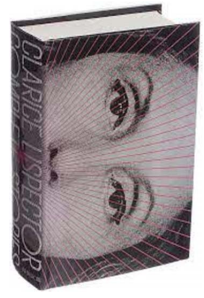COMVEST - UNICAMP - Inglês - 2021 - Vestibular - Primeira Fase - Provas Q e Z - Biológicas e Saúde
‘The Complete Stories,’ by Clarice Lispector

By Terrence Rafferty
July 27, 2015
There’s a whiff of madness in the fiction of Clarice Lispector. The “Complete Stories” of the Brazilian writer, edited by Benjamin Moser and sensitively translated by Katrina Dodson, is a dangerous book to read quickly or casually because it’s so consistently delirious. Sentence by sentence, page by page, Lispector is exhilaratingly, arrestingly strange, but her perceptions come so fast, veer so wildly between the mundane and the metaphysical, that after a while you don’t know where you are, either in the book or in the world. So it’s best to approach her with some caution. For the ordinary reader — that is to say, for most of us — immersion in the teeming mind of Clarice Lispector can be an exhausting, even a deranging, experience, not to be undertaken lightly. (Pack food, water, a first aid kit and plenty of sunblock.)
Her stories are full of strange words, in strange combinations, and her “Complete Stories” is a remarkable book, proof that she was — in the company of Jorge Luis Borges, Juan Rulfo and her 19th-century countryman Machado de Assis — one of the true originals of Latin American literature.
THE COMPLETE STORIES
By Clarice Lispector
Edited by Benjamin Moser
Translated by Katrina Dodson
645 pp. New Directions. $28.95.
(Adaptado de https://www.nytimes.com/2015/08/02/books/review/the-completestories-by-clarice-lispector.html. Acessado em 21/07/20.)
No texto acima, o livro de Clarice Lispector recebe uma crítica
A) positiva, apesar das ressalvas quanto aos cuidados que a leitura da obra exige.
B) negativa, apesar dos elogios à originalidade da autora e à tradução para o inglês.
C) positiva, apesar dos alertas quanto às temáticas perigosas da obra.
D) negativa, apesar da comparação com grandes nomes da literatura latino-americana.
A
B
C
D
E

